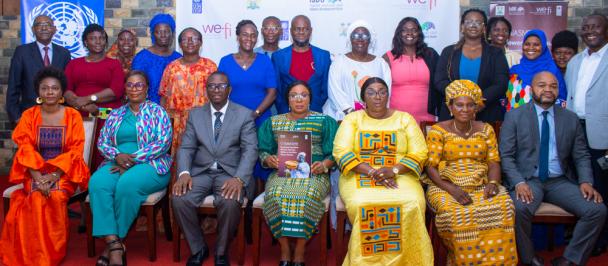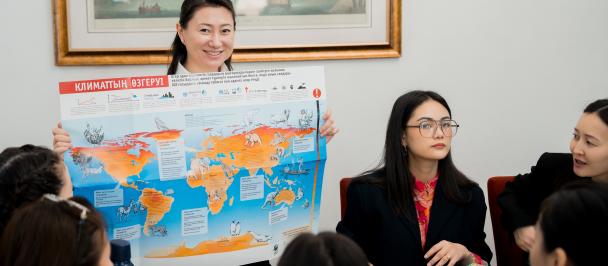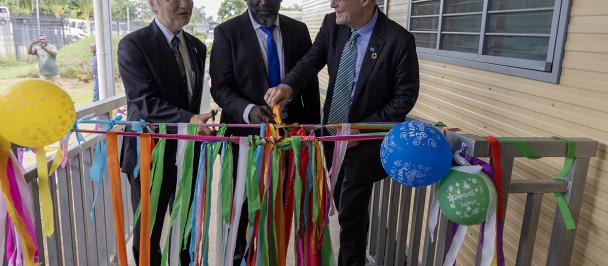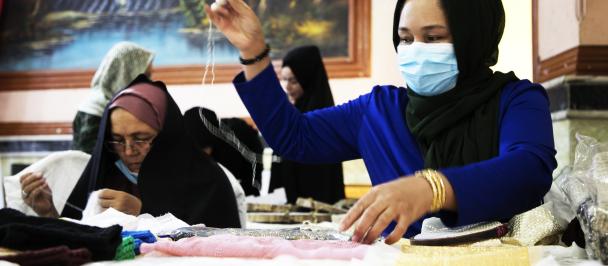The Sustainable Energy Fund (SEF) Grant Program for Rooftop Solar PV Exceeds the Installed Capacity Target - SMEs and Social Facilities are the Largest Incentive Recipients
March 16, 2023

The solar panel installation at PT Indrapura Megah Makmur with 44,8 kWp capacity. PT IMM was one of the recipients of PLTS Atap incentive.
The use of new and renewable energy sources - one of which is through the use of solar panels - is a more environmentally friendly alternative energy source with an increasing demand to meet daily electricity needs.
In addition to reducing greenhouse gas (GHG) emissions, Rooftop Solar PVs are now easier to install with more affordable investment cost over time. So it's not surprising that the number of rooftop solar installations in Indonesia is increasing.
This trend can be seen from the total installed capacity of Rooftop Solar PVs through the the Rooftop Solar PV Incentives under the Sustainable Energy Fund (SEF) Grant Program which managed to triple the initial target of 4.9 MWp installed capacity. Now the program has led to the installation of 15.5 MWp Rooftop Solar PVs within 10 months of the program’s implementation. This amount contributed to reducing greenhouse gas emissions by 7,536 tons of CO2 from electricity generated from the installed rooftop solar panels.
This program - launched between February to December 2022 - is a collaboration between the Directorate General of New, Renewable Energy and Energy Conservation, the Ministry of Energy and Mineral Resources and UNDP Indonesia through the Market Transformation through Design and Implementation of Appropriate Mitigation Actions in the Energy Sector (MTRE3) Project, funded by the Global Environment Facility (GEF). The incentives were distributed by the Indonesian Environmental Fund (BPDLH), a public service agency under the Ministry of Finance.
“We really appreciate all parties who have provided support for the implementation of this incentive program. Thanks to a number of adjustments and effective dissemination to the stakeholders, the capacity of the Rooftop Solar PVs exceeded the set target," said Andriah Feby Misna, Director of Various New Energy and Renewable Energy at the Directorate General of New and Renewable Energy.
Under a gap funding scheme, the Rooftop Solar PVs incentive program covers 10 percent to nearly 100 percent of the investment cost which has been determined based on the results of an economic study in Indonesia, and targets PLN customer groups (residential, business, industrial, social). This incentive is given in different amounts for each customer group with the aim of achieving economic value, and is provided after the installation of the Rooftop Solar PVs is completed as a form of result-based payment. Application may be submitted online through the website www.isurya.mtre3.id.
As of December 2022, based on the 8 stages of the distribution process that have been carried out, as many as 383 people have received incentives with a total incentive value of more than IDR 23 billion. This results-based gap funding scheme has succeeded in driving a total investment of IDR 43.5 billion from incentive recipients or around 15% of the total incentives provided.
The distribution of these incentive grants has helped alleviate the burden on operational costs and the electricity needs of the community, especially critical sectors that have been hit hard by the COVID-19 pandemic such as the SME sector and the social sector (hospitals, schools, Islamic boarding schools and universities). The largest number of beneficiaries are from these two sectors, receiving IDR 4 billion (PLN customers under SME category) and IDR 15.7 billion (PLN customers under social category) respectively.
One of the incentive recipients from the social category, Gadjah Mada University (UGM), said that the benefits obtained from installing rooftop solar panels were very significant because it could contribute to energy savings and reduce CO2 emissions.
"The Sustainable Energy Fund Grant Program is highly beneficial in helping UGM realize the concept of green energy in the university environment, as well as helping realize our commitment to support the 2030 emission reduction target," said the UGM Campus representative. "In addition, the Electrical Energy Consumption Monitoring System for Buildings that we are currently implementing can help provide an overview to the management regarding electricity consumption which can later be used as a consideration for supporting decisions on policies on energy saving."
The SEF Grant Program on the Rooftop Solar PVs Incentives is expected to encourage public investment in the renewable energy sector and contribute to the national target to achieve 23% renewable energy mix and reduce greenhouse gas emissions in the energy sector.
For more information on the program, beneficiaries, and impact analysis of the Rooftop PV incentives, please visit www.isurya.mtre3.id .
As published in Kompas https://biz.kompas.com/read/2023/02/27/175342628/program-insentif-untuk-plts-atap-lebihi-target-ukm-dan-fasilitas-sosial-jadi

 Locations
Locations


